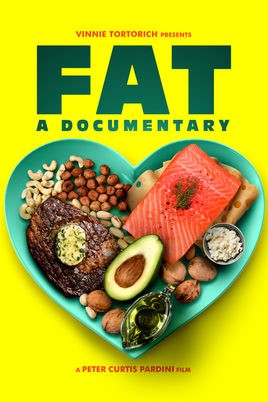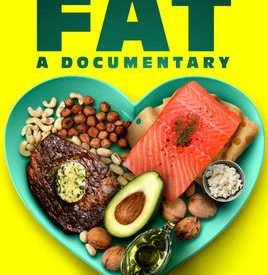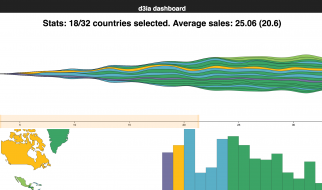A Rare Diet Doc that Makes Scientific Sense
In 1993 I looked down at the scale and I hit an all-time high. Two hundred and thirty-five pounds. It was not the good weight I once carried at 210 lbs of lean body mass. This was the same frame covered in pasty goo. I was 26 years old, my genetics were working against me, and that doughboy in the mirror said something had to change. I wasn?t going to buy new pants.
I was in the second year of Ph.D. graduate school, in Chicago, being paid $13,000 a year. I was fat and unfit. The plan was easy- switch to vegetables and fruits, cut out meat and watch fat. After all, fat was allegedly the bad stuff. I also returned to running, lumbering across a parking lot probably 250 yards before heading back.
One year later I was 165 lbs and running 50 miles a week. I was too skinny for my frame. I wasn?t going to buy new pants. I was fit, but not healthy. Blood tests revealed high triglycerides and cholesterol levels approaching 300 with low HDL (the good one). It was a disaster that led me to contemplate statins to correct blood chemistry and high blood fat when I was eating almost none. I rode that train for sixteen years.
Into my 40?s I was a national competitor in martial arts, and I just could not recover from exercise. Doctors put me back on a diet including meat, and it really made a difference. Ironically, my blood scores returned to a normal range as I learned the magic of pork loins and eggs again.

This is the point of Fat: A Documentary. a new film by Fitness Confidential guru Vinnie Tortorich. I consider myself a fan, and have been on his podcast twice. I personally arrived at the same place he is ? cut sugar, limit grain and weight is easier to manage, with many other health benefits.
The story outlines the 1800?s invention of veganism, all-meat diets of the Inuits, post-WWII malnutrition that gave us grain-heavy guidance, and all of the other fads that misdirected us from the reality of eating healthy.
His main thesis is that what we have been told might just be wrong, and it probably is. The mantra of Fat=Bad started in the 1950?s with cherry picked data that became the bedrock of a national trend ? to cut fat from the diet.
In the 1970?s, 80?s and 90?s, the abandoned fat calories switched to sugar (and other carbohydrates that ultimately end up as sugar) instead, and an obesity epidemic was born. The new reliance on carbohydrates as daily fuels ignited ghastly new trends in diabetes and metabolic syndrome.
The pacing of the film is rapid fire, with credible expert interviews laid over film reel footage and old commercials that reinforce the narrative. It is as entertaining as it is informative, and I laughed out loud many times during the presentation. However, the punchline is dead serious.
I did not agree with the continual inference that this diet misdirection is a deliberate ploy by the medical-industry-conglomerate to make people sick to sell more medicine, and that doctors somehow suppress this information. I could not imagine how an industry could suppress such information, and how every scientist and physician would be a knowing pawn of the scheme.
To the opposite, I agree with Dr. Drew Pinsky who in the film says that he received zero training in nutrition as a physician. That?s the problem. Patients want quick fixes, doctors have pills and fast advice.
It is a breakdown in training of physicians, the accepted conventions in care, patient non-compliance, genetic diversity, and a culture of quick fixes. Plus, how do you get people to abandon long-held social tendencies and desires?
I also disagree that an all meat diet is the way to go. From my perspective there is undeniable evidence that fruits and vegetables impart vitamins, trace elements, fiber and other compounds that contribute to health.
The ultimate synthesis is to get rid of the sugar, the constant bombardment from so many processed products. The film mentions that there are 70-some terms that refer to sugar (like dextrose) in food ingredient lists that simply represent forms of carbohydrates that end up as sugar (ultimately glucose) in metabolism. That contributes to the current declines in health trends.
The film is absolutely worth a watch. The information inside should be integrated into one?s personal plan, remembering that genetics also play an important role in long-term health risks and response to dietary change.
That?s the most important message. Understand that you may have been given bad information and do the test yourself. Limit manufactured sugars, or eliminate them all together. Eat reasonable amounts of fruit and vegetables. Enjoy meat, milk and eggs. But take it one farther. Vary the timing of eating. Skip meals, try fasting, and see if you feel better or keep weight off. You have to discover what works for you.
Tortorich?s film is a great first step in that journey. Watch it and leave angry, be disgusted at how we have been manipulated and fed bad information to our own detriment. Then go apply what you have learned to revise your own diet and exercise habits.


